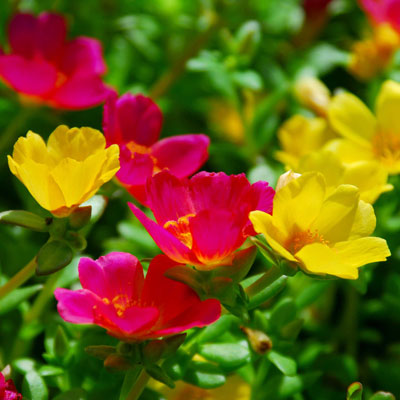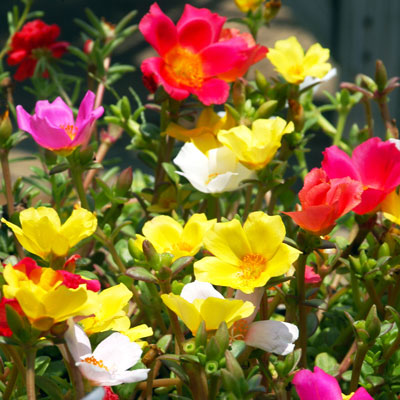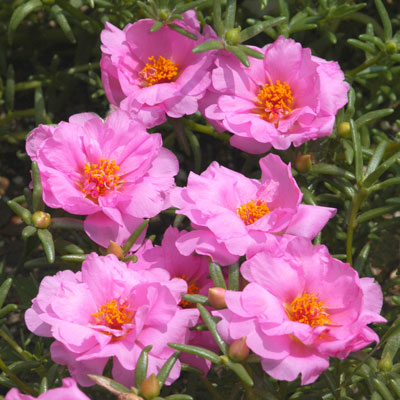Hybrid Purslane Thrives in the Heat
Farmers will tell you, “That thing looks like common old pigweed,” and they won’t be far wrong. Hybrid purslane, after all, is a sister to the common barnyard invader. But oh my goodness, look what the plant breeders have done to it to make it tons better.

Purslane’s first use was as a hanging basket plant as baskets became the craze back in the 1980’s.
I first saw this plant used as a hanging basket flower probably 35 years ago. It was being sold primarily in rose-red and bright yellow forms. However, almost immediately people began to plant it out into the gardens as a summertime annual. It, and those gardeners who grew it, couldn’t have been happier. The purslane basked in the sunshine, and the gardeners basked in its success.
Growers started introducing all shades of purslanes from dark reds to pink, white and two-toned. Flower sizes increased. The zest they brought to summertime gardens was like popping open big containers of rainbow sherbet. It’s that cooling visually!

Just a few of the many colors in which hybrid purslane is sold.
But you don’t see our old buddy hybrid purslane as often now as you used to, and that’s a mistake we all can correct. Nurseries have it in stock, and this is a fine time to be planting it. I honestly don’t think this plant has ever met a spot that was too hot or foreboding for it to succeed. All it asks is full sun, good soil and ample water. A little nitrogen fertilizer occasionally will help, but don’t overdo it. Every couple of weeks will be adequate.

Moss rose (Portulaca) is a sister to hybrid purslane. If you’ve had success with this plant, you’ll love hybrid purslane!
And before we close out this page of the story, yes, purslane is a sister to our many beautiful selections of portulaca, or moss rose. Purslane plants tend to be shorter and more spreading, and their flowers are usually single. Portulaca, aka moss rose, forms clumps that cover themselves with double, brightly colored flowers. As with purslane, all moss rose flowers last but one day. But there are hundreds more awaiting their turns.
